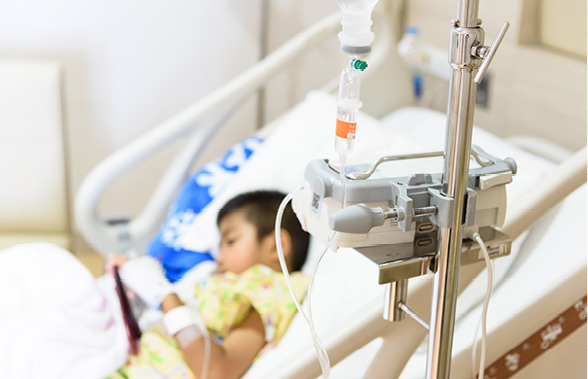Advance care planning
Advance care planning is the process of preparing for changes in your child’s health. This process can include making practical plans, as well as thinking about mental, emotional, and spiritual aspects of your child’s care. An advance care plan can be written in a document that sets out your family’s wishes if and when your child’s health changes.

Advance care planning is the process of preparing for changes in your child’s health. This process can include making practical plans, as well as thinking about mental, emotional, and spiritual aspects of your child’s care. An advance care plan can be written in a document that sets out your family’s wishes if and when your child’s health changes.
Advanced care planning helps you think about situations before they happen. Working together with a trusted healthcare provider, such as your child’s doctor or a pediatric palliative care clinician, you will make a plan for your child that respects your family’s values, wishes and goals.
“It was very important to me that we not do the crazy resuscitation. We know we have a sick child who is going to pass away. If she comes out not breathing again then that’s okay. I am going to take it that it’s the time we get. I don’t feel need to intervene on something we can’t change. She is going to die…It wasn’t going to change the big picture for me.” – Esther, mother of Elianna and Eli-Grace
Learn about your child’s health
- What do you know about your child’s current health?
- Examples: heart function, number of seizures per day.
Think about the future
- What events or changes to your child’s health are likely to happen? This is called the prognosis.
- Try not to get caught up on timing - often no one knows exactly when these changes will occur, if they do at all.
- Examples: heart function will get worse, leading to decreased energy and shortness of breath; a seizure that causes breathing to stop.
Talk about treatment options
- What treatments are available for these expected or possible changes in your child’s health?
- How will these treatments affect your child?
- Are there significant side effects to consider?
- What are the possible outcomes from these treatments?
- In this stage, don’t hesitate to do your research and ask your child’s care team for ideas.
- Examples: heart transplant, deep brain stimulation for seizure.
Talk about values
- What’s important to you and your family?
- These may be personal values, family values, cultural values, spiritual values, or religious values.
- How do these values guide your decisions about healthcare?
- Example: long life, comfort, independence from medical technology, avoiding major surgeries, providing all reasonable interventions that may facilitate survival, ability to go to school.
Develop goals of care
- When you think about your child’s health, the prognosis and the values that help guide your decision-making, what do you hope to achieve?
- What matters most to you?
- Example: to remain at home as much as possible; to prevent and treat pain aggressively; to use medical technologies that prolong life while maintaining quality of life.
Document your plan
- Think about what kind of treatment or response you would want for your child if certain situations happen.
- Talk about which treatments or responses best fit your family’s goals of care.
- Write out your wishes and share them with the healthcare providers and people who should know.
Case: Sarah's advance care plan
- If Sarah has new symptoms (e.g. pain, swelling, fever): We would like Sarah to have a home or office visit with our family physician for assessment and advice. We would like the physician to share this information with us so we can make a decision.
- If Sarah’s health gets much worse (e.g. difficulty with breathing, decreased level of consciousness): We would like Sarah to receive comfort measures at home as outlined in her Symptom Management Plan. When her condition declines and symptoms are more prevalent, we would like to be supported through regular and open communication with the care team and to be in touch with our with religious leader.
- If Sarah’s heart and/or lungs stop working (i.e. cardiac and/or respiratory arrest): We would like to ensure that those present DO NOT ATTEMPT RESUSCITATION and that Sarah be allowed to pass away in peace. We, her parents Rob and Rina, would like to be alone at her side at this time.
It’s never too early to start thinking about the future, even if you don’t make any firm plans. The situations you talk about during your Advance Care Planning might not happen any time soon. Some may never happen. What’s important is that you have a chance to think about your child’s healthcare before there is a crisis. You can change your plan at any time to be sure it still reflects your wishes and as you child's medical condition changes with their illness.
Resources












